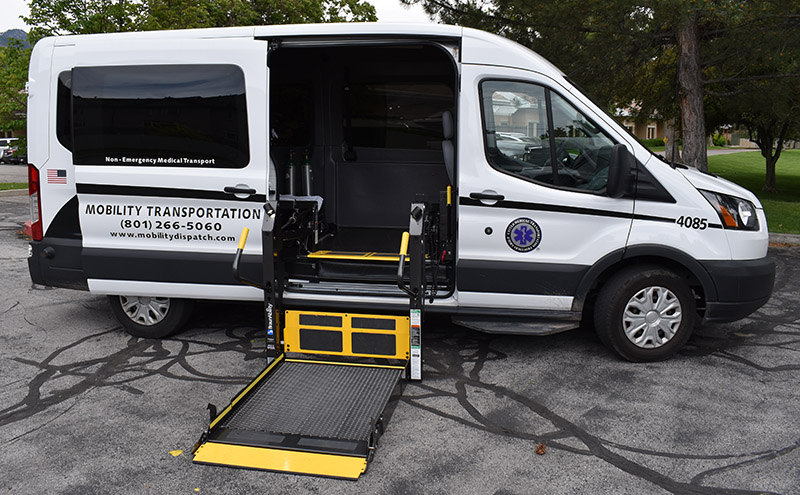Conveniently Reach Healthcare with Medical Transportation Services Near Me
Conveniently Reach Healthcare with Medical Transportation Services Near Me
Blog Article
Available and Affordable Medical Transportation Options for Seamless Health Assistance
In the world of health care, the access and affordability of clinical transportation are vital in making sure individuals can access the care they need when they need it. The capability to effortlessly navigate transportation choices can significantly impact a person's capability to get prompt clinical focus, follow-up care, and general wellness. From non-emergency clinical transportation solutions to cutting-edge solutions like telehealth, the landscape of medical transportation is evolving to satisfy the diverse needs of clients. Thinking about the importance of this element in healthcare delivery, discovering the range of options available comes to be necessary for attending to spaces in ease of access and price.
Non-Emergency Medical Transport Solutions

These solutions are staffed by qualified experts that focus on individual comfort and security throughout transportation. Drivers are furnished to manage individuals with differing medical demands and make certain that all journeys are smooth and worry-free - Medical Transportation Services Near Me. Additionally, non-emergency medical transport services commonly use specific cars that are wheelchair-accessible, making them ideal for a vast array of patients with different wheelchair requirements
Volunteer Driver Programs
Volunteer driver programs contribute in offering transportation assistance for individuals looking for non-urgent clinical care. These programs depend on the kindness of volunteers who contribute their time and cars to assist transportation individuals to and from medical visits. By utilizing volunteer vehicle drivers, companies can offer an economical option for individuals that might not have accessibility to dependable transport.
One of the key benefits of volunteer motorist programs is the customized treatment and attention that people obtain. Unlike typical transport solutions, volunteer motorists usually establish a rapport with the individuals they assist, creating a helpful and compassionate setting throughout what can be a difficult time. Furthermore, volunteer vehicle driver programs can aid link the void for individuals staying in rural or underserved areas where public transport options may be limited.
Public Transport Options

One of the vital benefits of public transport is its prevalent availability in urban and country locations alike. This considerable network enables clients from varied backgrounds to take a trip to clinical consultations with relative convenience. Additionally, public transport systems are commonly geared up to suit individuals with impairments, offering obtainable traveling choices for those with wheelchair obstacles.

Ride-Sharing and Transport Network Companies
The advancement of modern-day transportation options for clinical functions expands beyond traditional public systems like trains and buses to incorporate the ingenious world of ride-sharing and transport network companies. Ride-sharing solutions such as Uber and Lyft have actually reinvented the means people take a trip to clinical visits, offering ease and versatility to people that may not have accessibility to their automobiles or conventional public transport. These systems permit individuals to ask for an adventure with the touch of a button on their mobile phones, providing door-to-door solution that can be particularly beneficial for people with movement obstacles or those calling for support.
Transportation network companies (TNCs) have additionally played a significant duty in bridging the void in medical transportation solutions. Business like Veyo and RoundTrip focus on non-emergency content medical transportation, accommodating patients that need a higher degree of aid during their trips to clinical centers. By partnering with doctor and insurance firms, TNCs guarantee that clients can access prompt and reputable transport services, eventually contributing to improved wellness results and individual fulfillment.
Telehealth and Virtual Assessments
Enhancing medical care access and benefit, telehealth and online appointments have emerged as pivotal components in modern medical techniques, revolutionizing the method clients interact with doctor. Telehealth leverages innovation to promote remote communication between clients and healthcare professionals, using a wide array of services such as online examinations, remote monitoring, and digital prescriptions. Virtual assessments make it possible for people to look for medical recommendations, diagnosis, and therapy from the convenience of their homes, eliminating the demand for physical sees to medical care centers. This method not only saves time and lowers transportation prices for patients yet also enhances the general performance of medical care delivery.
Additionally, telehealth plays a crucial role in expanding clinical solutions to underserved areas, rural locations, and individuals with limited flexibility. By breaking down geographical barriers and increasing health care outreach, telehealth promotes early intervention, connection of treatment, and client involvement. As technology remains to advancement, telehealth is poised to play a significantly considerable function fit the future of health care delivery, fostering improved wellness results and individual satisfaction.
Verdict

From non-emergency clinical transport services to ingenious options like telehealth, the landscape of medical transport is advancing to meet the diverse demands of people.Non-Emergency Medical Transportation Provider assist in the timely and safe transport of people calling for non-urgent medical care to and from medical care facilities.The evolution of modern transportation you could try this out alternatives for medical functions prolongs beyond traditional public systems like buses and trains to incorporate the cutting-edge world of ride-sharing and transport network firms.Transportation network business (TNCs) have actually also played a considerable function in bridging the space in medical transportation solutions. Non-Emergency Medical Transport Solutions, Volunteer Vehicle Driver Programs, Public Transportation Options, Ride-Sharing and Transport Network Companies, and Telehealth and Virtual Consultations all play a look at this now crucial role in addressing transport obstacles to medical care accessibility.
Report this page